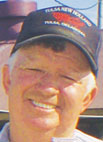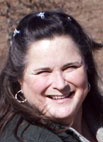
There was a time when Jerry Carnes, his three siblings and parents spent long hours milking 22 cows a day by hand. That was back when Carnes Dairy was just beginning on a 240-acre spread in Rose, Okla., that his parents, Paul and Floy Carnes, had purchased on March 18, 1950.
"They ran a diversified family farm, but dairy quickly became the main focus," said Jerry, who took over the farm when his father retired in 1996.
Carnes Dairy has expanded and shrunk throughout the decades, but today the farm has a total of about 370 registered Holsteins, 10 bulls and a few Jerseys that sit on about 1,255 acres straddling the Cherokee Turnpike in eastern Oklahoma.
"When we got a two-unit pipeline, we thought we were uptown. We started out way back in the rough. By 1971, we built a new dairy barn, where we milk the cows now, and we remodeled from a double-six to a double-nine in 1988. We’ve kept expanding and growing throughout the years, and this summer, we’ll expand to a double-twelve and an updated milking pulsation system that can handle 24 milkers at a time. It’s important for us to continue using technologies that help us best care for our cows."
Nowadays, Jerry is joined by wife Charlotte; 15-year-old grandson Bodhie Carnes; and daughter and son-in-law Brandy and Bryan Johnson, and their children, Toby, Brook and McKay. Hired hands Dustyn Wyche and Zach Smith, both 18 and of Westville, Okla., also join the family in working the farm. Together, they use an automated system twice daily to milk more than 300 Holsteins, a breed known for high amounts of milk production. All total, the cows produce about 2,000 gallons of milk daily.
Jerry has spent his whole life within a 10-mile radius of Carnes Dairy. His wife, a self-described "city girl" from Tulsa, moved to an aunt and uncle’s "old country place. I always liked the country, but I never had the opportunity to live here until the late 1970s." Jerry and Charlotte each had a previous marriage, but then they "found each other" and married in October 1978. Jerry continued to work his parents' farm until circumstances made it possible for him to take over. Charlotte eventually became a rural mail carrier.
After almost 60 years in operation, the day still starts at 3 a.m. and ends about 7 p.m. seven days a week.
The Practice
"We don't just work the land – we live on it, too," Jerry said. "We produce a food product, so we have to be clean. We work to protect our soil and water to provide a good home for our cows and for ourselves. By using channels and erosion control techniques, residue management and buffer strips, we maximize the soil's ability to produce quality pasture and forages year after year."
The milk herd has access to two ponds on the main 550-acre plot, but there are two other ponds for reserve supplies, and a system of channels to route water to the herd. The farm also employs an NRCS-developed Comprehensive Nutrient Management Plan that allows the family to use stored waste as fertilizer, thereby decreasing the need for commercially manufactured fertilizers.
"We work hard to manage our dairy waste," Jerry said of on-farm management practices. "We scrape the manure daily, dry stock it and haul it off, as needed. We don’t use much chicken litter; phosphorous and potash is not extremely high; and we test the soil at least twice a year, and the manure, lagoon and well water are tested yearly."
Jerry has spent the last three years adding 6.5 miles of fencing and cross-fencing, and he’ll spend the next two years adding another 6 miles of fencing. "There are many spots out there I hand-patched when I was a kid. Before I retire, most or all of that fencing will be new."
Outside of environmental issues in the industry, labor has been the biggest challenge because many young people prefer not to remain on the family farm, the Carnes agreed. "Twenty years ago there were over 1,100 dairies in Oklahoma and now, there’s about 300," Jerry said.
"The dairy business is pretty confining. It doesn’t give you much time to be free, but I am not going to be milking cows when I’m 66."
That's hopefully where his children or grandchildren will come in, carrying on the family tradition.







